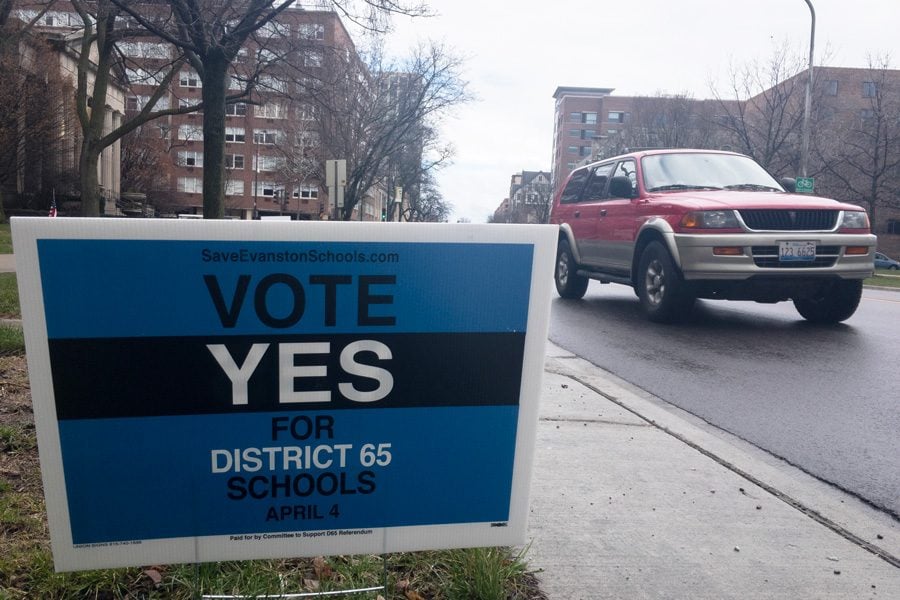D65 school board referendum passes with overwhelming support
Jeffrey Wang/Daily Senior Staffer
A sign supporting the District 65 referendum. On Tuesday, citizens voted overwhelmingly in favor of the referendum.
April 5, 2017
Evanston/Skokie School District 65 passed a proposed referendum by a wide margin Tuesday that will increase local property taxes to combat rising educational costs.
The referendum passed with more than 80 percent of support from 19,118 voters who weighed in on the issue. It will raise property taxes by about $450 dollars annually for the average Evanston property owner, according to a District 65 financial presentation.
District 65 Superintendent Paul Goren called it a “humbling” day for the district. He said the new referendum money will allow the district to continue work on multiple fronts, including improving student achievements, technology investments and keeping class sizes small.
Goren said referendums fail 70 percent of the time, on average, so the district couldn’t presume a successful outcome. He pointed to the amount of support the referendum received as evidence of residents’ commitment to public schools.
“The overwhelming support and the deep commitment of voters of both Evanston and Skokie to their public schools is something that we couldn’t be more appreciative of,” Goren said. “It will make us want to wake up in the morning early and go to work and continue to make the differences that we’re doing.”
District 65 receives 75 percent of its budget from local property taxes, according to board documents. The increase that will result from Tuesday’s referendum will help alleviate rising costs associated with a roughly 20 percent enrollment increase since 2007.
The school board voted on and unanimously passed a measure to put the referendum on the ballot in early January. District 65 board president Candance Chow said in January that if the referendum did not pass, the district’s only other option would have been significant budget cuts, likely resulting in substantial class size increases and school closings.
“These are not small impact reductions,” Chow told The Daily in January. “They will impact the classroom, they will impact the teaching and learning environment for children significantly.”
According to board documents, the district’s budget is balanced for the current year. Had the referendum failed to pass, it was projected to face a $114.4 million deficit by fiscal year 2025. With no state budget, this was a conservative estimate, as there could still be an additional $6 million to $8 million annually cut from the district’s budget, Chow said in January.
With finances secure for the foreseeable future, Goren said the district can focus on implementing key parts of its strategic plan.
“The work that we have ahead of us with our strategic plan is now undergirded by financial stability so that we can actually do the work to make a difference in kids’ lives,” Goren said.
Email: [email protected]
Twitter: @ryanwangman












